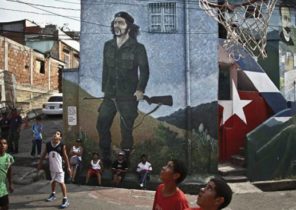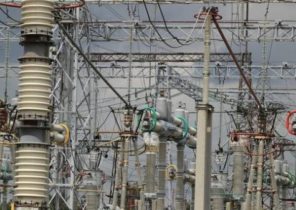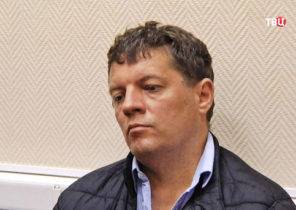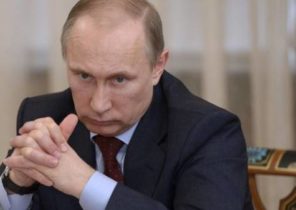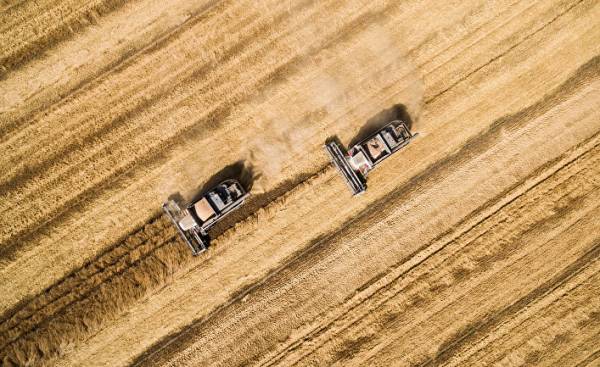
We must pay tribute to the Turks — the vagaries and strange twists of Moscow’s policy in his address after formally proclaimed the Russian-Turkish “reconciliation” they have suffered for a long time. But every exposure has its limits, and on March 15 of this year Ankara and the Kremlin is once again faced — terminated licences for duty-free supplies of wheat, corn and sunflower meal. In an official statement on the matter talked about “some countries”, but it was quite obvious that, first and foremost, the move is aimed against Russia.
Now on their importation acts duty of 130% for Russian exporters is, in fact, a complete cessation of deliveries and almost half a billion dollars in losses. Dry statistics from the Federal center for quality assessment and grain safety of the Russian Federation of March 20, 2017: the beginning of the season Russia exported 31.7 million tons of grain and products of its processing. Turkey had 2.1 million tons of wheat, or 46.6 per cent of total exports, 431,7 thousand tons of sunflower meal and 431,4 thousand tons of corn. Of the total volume of export of sunflower oil this season (1.1 million tons) in Turkey were delivered to 370 thousand tons.
In addition, before the end of the current season (June 2017), the Russian exporters could deliver to Turkey an additional 0.5-1 million tons of wheat, 400-700 thousand tons of corn, 100-200 thousand tons of sunflower meal and 250-350 thousand tons of sunflower oil. Economic reports show that grain prices in the country have gone down, and the mills will soon face capacity.
High-ranking Russian officials, following a long established pattern, hastened to declare that nothing happened, that Turkey itself will suffer significant losses from this step that domestic consumers — Oh, this touching concern for “the people” — will benefit from additional volumes of grain and flour in the domestic market.
However, the attempt by officials to soothe and encourage turned in confusion. The incompetence of their statements was so obvious that caused a reaction of the experts on this topic, see the situation not from government offices, and that is called “from the earth”.
First, they said, Turkey at the moment is not so dependent on Russian wheat, as it was a few years ago. Second, this is intended to send the Turks the wheat to refocus on the domestic market, as domestic market in 2017 is fully saturated, and its volume is limited — the surplus is simply no one will buy.
Thirdly, and perhaps most importantly, if in the domestic market will be the additional volumes of wheat, any reduction in the price of bread grain surpluses still will not.
“Grains and so is more than enough, profitability, and so more than the minimum. The new crop is not far off, and accordingly, the seasonal decline in prices. So nobody will make the stocks of grain, even if the price will fall. In addition, the cost of bread cost of grain accounts for a very large share, there is a significant component of energy, wages, taxes, transport, trade and other margins. So count on the lower prices for the end consumer, at least naively,” reported the media Vice-President of the Russian Union of milling and groats enterprises Igor Sviridenko.
And generally, in his opinion, and to doubt the competence of the person there is no reason Turkey could easily replace the Russian grain to Ukrainian. In addition, Russia is to compete with Turkey for the supply of flour to other countries will not be able — loses on logistics. Turkish flour is produced in a relatively small area in close proximity to sea ports. Russian flour mills scattered over a huge territory from North-West to Siberia, and from many ports located at a distance of several thousand kilometers.
It soon became clear that the Turks one grain is not limited. On March 18 of the Turkish foreign Ministry issued a statement on Crimea and Crimean Tatars, which once again reminded that Ankara does not recognize the legitimate referendum held on 16 March 2014, and the situation of Crimea considers a violation of international law. The week before Turkey ceased the ferry service to the Peninsula, which was renewed in October last year.
Trade war in the modern world it is commonplace, they do happen even between the closest allies. But what we are seeing now in the relations between Moscow and Ankara, in the framework of the traditional economic conflicts doesn’t fit. The more that this situation has arisen just a week after Erdogan’s visit to Moscow and his talks with Vladimir Putin, following which the two presidents were convinced the public and the rest of the world that relations between the countries after the incident with the downed Russian plane and public reconciliation in August 2016 finally returned to normal. And generally Moscow and Ankara “has returned to the path, indeed, a partnership, multifaceted cooperation”. To the extent that Turkey is ready to buy Russian air defense systems s-400.
However, the “alarm calls” that not everything is rosy in the bilateral relationship, as they try to present, was made during this visit. Recall, from 1 January last year, Moscow imposed against the Turkish economic sanctions, particularly the ban on the export of citrus, grapes, apples, pears, apricots, peaches and nectarines, plums, strawberries and vegetables: tomatoes, cucumbers, cauliflower and other things. Find it difficult to name the exact number of Turkish casualties from this “fruit and vegetable war”, but the citizens paid for it out of his own purse, after rising prices for these products.
So, despite claims of “normalization” of the Russian side of the war with vegetables and fruits from Turkey did not stop. Before the arrival of Erdogan expected the final lifting of sanctions, but nothing like this has happened — Moscow was only a promise to lift the ban on the recruitment of Turkish workers in Russia from the sanctions list excluded cloves, onion, cauliflower and broccoli. As for the suffering of tomatoes (before the introduction of restrictions on their share in the Russian market was nearly 60%), as well as cucumbers and apples, then they remain banned. And against citizens of Turkey to operate a visa regime.
The second “alarm bell” sounded on a press-conferences in the Kremlin, during which Erdogan said that the elimination of one of the terrorist group “Islamic state”, with the other, the Kurdish people’s protection units (YPG), is impossible. Thereby making it clear that Turkey absolutely does not intend to continue to tolerate Russia’s “games” with the Syrian Kurds.
Here it is obvious that in his “Turkish party” — whether economic and political issues — Moscow herself outwitted and confused. When it overestimated its importance for Ankara and frankly underestimated the possibility of the Turkish side the adoption of stringent response.
From the outside, it looks quite logical, if such a word could be applied to current foreign and domestic policy of the Kremlin. Let’s start with the fact that Russian agriculture today is the patrimony of the banks and quite a thin layer of landowners, owning vast areas of land, but still constantly expanding these areas by weaning in small and medium farms. For this layer the lifting of sanctions against Turkish vegetables — straight loss, as makes it impossible to sell people products at inflated prices, creates totally unnecessary competition, in fact, hits the pocket. And since this layer included a considerable number of Federal and local officials, Vladimir Putin is very fraught in conflict with those who is now his prop. Why for partnership with Turkey “rock the boat”?
The situation is similar with Russia’s disregard for Turkey’s Kurdish issue. First, and through him, Moscow is trying to integrate into the Syrian party States, which are also not averse to playing with the “Kurdish autonomy” as the creation of additional leverage to become, in their opinion, too independent foreign policy of Ankara. Second, Russia now urgently needed an influential ally in Syria since the present its claim to the “special role” in what is happening in this country the conflict look rather uncertain — in fact, in addition to their own expeditionary force and some circles in Damascus to rely Moscow there is nobody else. And what with the fact that Ankara is concerned about the safety of their own stretching along the 910 kilometers of the border in Syria, through which can fight the terrorists? Short-term interest and the term “zadruzhitsya” future Kurdish autonomy — which, I note, a very big question and to be able to create, if necessary, additional problems to Ankara, according to the Kremlin, more profitable than partnership with Turkey.
In the end — last week it became known that the representatives of the Kurdish militias entered into an agreement with the Russian side about teaching their groups of “contemporary skills of warfare”, and in the Kurdish Canton of Afrin there arrived the Russian advisers and military equipment. Information that could be considered a “newspaper duck”, and the emergence of the Russian military in the Kurdish Canton to explain other reasons, only almost immediately after this event was followed by excluding double interpretation of the statement of the head of the international Affairs Committee of the State Duma Leonid Slutsky: “Damascus and the Kurds need to boost the dialogue on the creation of a Kurdish national autonomy within Syria, endowed with broad constitutional powers… This would help restore peace in the North of the country.”
All fairly obvious: Moscow makes it clear to Ankara that particular partnership with her is not interested, her interests be taken into account, by and large, not going to, and if Turkey wants to continue to cooperate with Russia, then let them accept the rules of the game, which will dictate the Kremlin. What, of course, and there is no need to possess too great abilities in forecasting, Ankara does not agree.
In this context, “grain war” that erupted in mid-March, only the first step in the escalation of pending all of us of tensions in Russian-Turkish relations. Given the fact that Tehran partnership frankly does not add up, a perfectly reasonable question: and who, then, Moscow hopes to base its policy in the middle East? In the United States and Israel?
